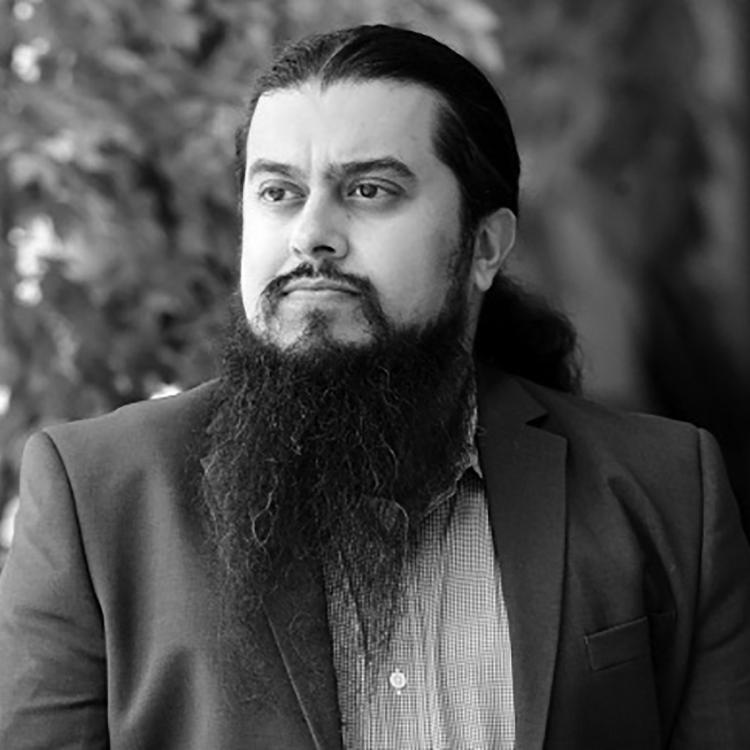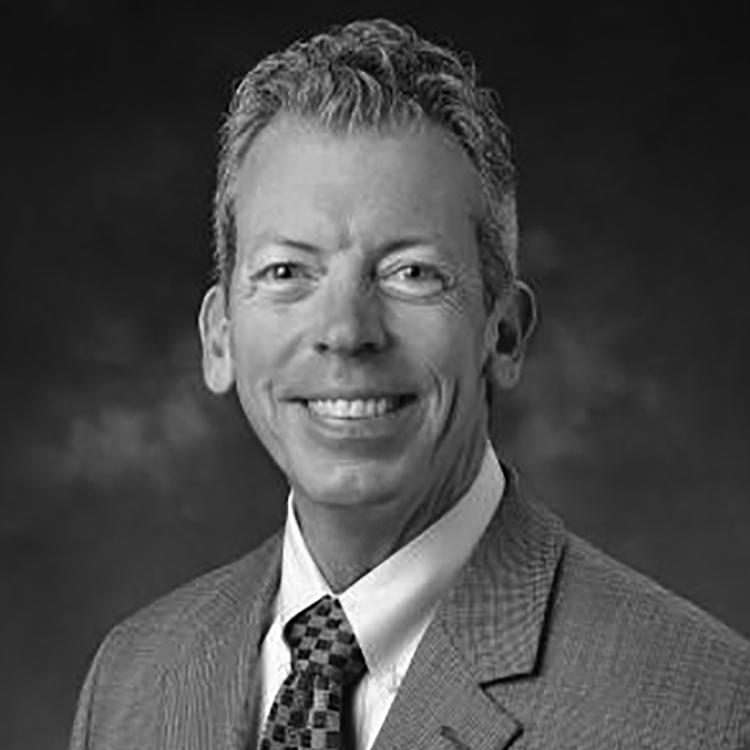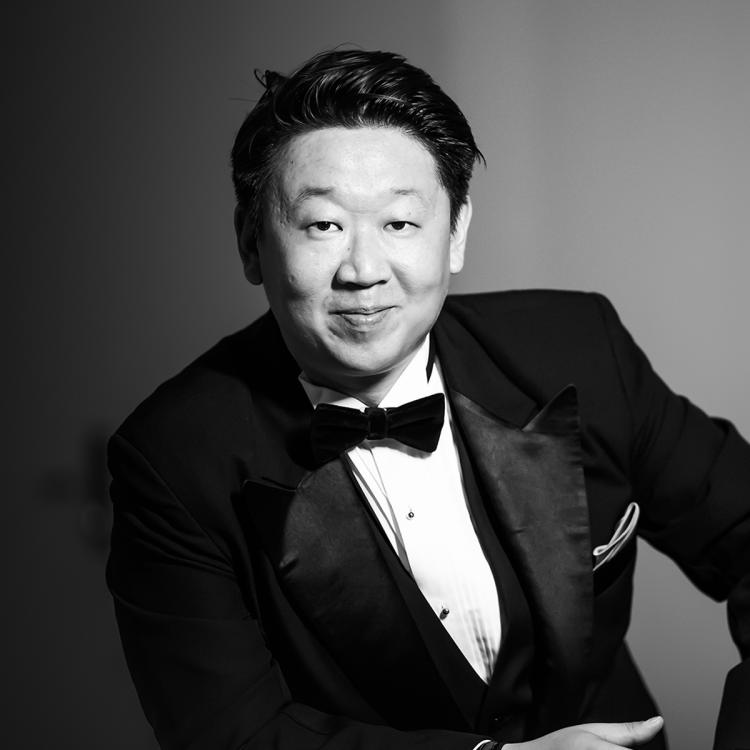2020 Alumni Award Winners
 Tom Garfinkel
Tom Garfinkel

George Norlin Award
In the early ‘90s, Tom Garfinkel (Comm’91) found himself tending bar in Chicago as a young CU graduate. Within a couple years, he was managing the place, along with two other bars.
The experience, which included negotiating beer deals and running marketing campaigns, set the stage for his entire career.
Thirty years later, Tom serves as vice chairman, president and CEO of the Miami Dolphins and Hard Rock Stadium and is considered a commanding voice in South Florida and the sports industry.
“Without any personal fanfare, Tom Garfinkel has transformed a 33-year-old football stadium into a modern, state-of-the-art, year-round sports and entertainment facility,” said Dick Anderson, former Buffs and Dolphins football legend.
Spearheaded by Tom, the Dolphins have not only renovated their stadium and increased attendance — in addition to hosting the 2020 Super Bowl — but also have expanded their charitable efforts and community outreach.
“Seizing on the opportunity to educate and unify the culturally diverse South Florida community, Tom created the Football Unites program,” said Florida Senator Marco Rubio. “With more than 61 community partners, Football Unites has successfully linked organizations together, reaching and educating countless constituents.”
Football Unites, started in 2018, has several initiatives, such as “Ride Along,” which connects the Dolphins, local law enforcement and youth organizations to encourage dialog and understanding.
“We want to change how people look at and interact with each other,” Tom told CBSN Miami. “We can hopefully help heal what is, in a lot of ways, a very polarized nation.”
As a board member for the Dolphins Cancer Challenge, Tom helped the Dolphins raise over $6 million for Miami’s Sylvester Comprehensive Cancer Center in 2020, the largest such fundraiser of any NFL team.
Tom also led an initiative to be the first stadium to eliminate 99% of single-use plastics and became the first stadium in sports to achieve GBAC-Star certification during the pandemic, which is an objective third-party expert standard for cleanliness.
Before his role in Miami, Tom — who has an MBA from the University of Michigan — served as president and CEO of the San Diego Padres, COO of the Arizona Diamondbacks and executive vice president of Chip Ganassi Racing’s NASCAR team. He also worked in sales and marketing at both Miller Brewing and Texaco Inc.
And finally, Tom’s love for sports is what drives much of his work. He met his wife, Allison, at the 1998 Miami Grand Prix and played high school football and basketball.
The father of three sons told the Coloradan alumni magazine last year, “Sports, and especially football, invokes the human spirit to inspire and motivate and educate us about ourselves, both the good and the bad.”
 Kris D. Gutiérrez
Kris D. Gutiérrez

George Norlin Award
Imagine a classroom where students teach as much as they learn. Where the students are as diverse as the teaching methods. Where every voice matters.
Kris Gutiérrez (PhDEd’87) is creating those classrooms.
Kris is an internationally recognized researcher, advisor, teacher and mentor in the education field. A prolific writer, she has long championed equity in schools. In particular, she has helped transform education for marginalized groups, including immigrant and migrant communities.
In developing her concept of “third space,” Kris recognized that both teachers and students can bring expertise to the classroom based on their unique experiences. She has also studied how learning environments can be better organized to reflect and respond to non-Western cultures.
“She is a genius at bridging contexts — not just bridging between academic and real-world contexts, but within academia bridging among divergent approaches,” said Barbara Rogoff, a distinguished professor of psychology at UC Santa Cruz.
As a public scholar, Kris is generous with her time. She was a member of President Barack Obama’s Education Policy Transition Team in 2008–09 and was also appointed by President Obama to the National Board for the Institute of Education Sciences.
She has served as president of the American Educational Research Association, the largest educational research organization in the world, and remains active as a keynote speaker, committee member and foundation advisor.
But Kris’ most direct, personal impact comes from her teaching and mentoring.
“Her courses are legendary for their rigor, playfulness and innovation,” wrote Arturo Cortez and José Ramón Lizárraga, assistant professors in CU’s School of Education.
Michael Cole, professor emeritus at UC San Diego, remembered co-teaching courses with Kris using online technology to increase the diversity of participants. “She is a remarkably accomplished scholar who has a great impact on contemporary education, particularly the education of Latinx children, youth and young adults,” he said.
Kris has mentored many doctoral students who have gone on to be leaders in the education field. She is committed not only to passing on her own knowledge and expertise, but to being an ally to underserved students.
“She has charted a path for scholars like us (queer, Latinx, first-generation college [students], as well as high school graduates) to have a place in the academy,” wrote Arturo and José, “and to continue the important work of imagining, designing and creating a new equitable and just world.”
After earning her doctorate from CU Boulder and serving as the inaugural Provost’s Chair in the School of Education, Kris is now the Carol Liu Chair in Educational Policy and a faculty member in the Learning Sciences and Human Development department at UC Berkeley, as well as a former professor at UCLA. Recently elected to the American Academy of Arts and Sciences — whose members have included Albert Einstein, Joan Baez and a member of the National Academy of Education — Kris continues to transform the educational system and inspire new scholars and teachers.
“Along with her indefatigable work ethic, her brilliant intellect and her inspiring leadership,” said Joseph L. Polman, associate dean for research at the School of Education, “Dr. Gutiérrez is a person of deep warmth and caring who maintains fierce attention to equity and transformational change.”
 Nikhil Mankekar (Fin’01)
Nikhil Mankekar (Fin’01)

George Norlin Award
The human life — any life — is of utmost importance to Nikhil Mankekar (Fin’01).
With a focus on diversity, inclusion, gender equity, housing protections, fair wages, preventing hate crimes and more, Nikhil has been a compassionate champion for women, black, Indigenous and people of color, immigrants, the LGBTQ+ community, the homeless population and under-resourced and under-served communities in Boulder and greater Colorado.
In short, Nikhil cares deeply about building a safe, welcoming, and inclusive community.
“He is a strong force in improving Boulder city and county, and Colorado, and brings innovation to social justice work and policy,” said Joanne Belknap, a tenured CU Boulder ethnic studies professor.
A Boulder native with a career spent in financial consulting, venture capital and social entrepreneurship, Nikhil’s confident leadership as a member and chairman of the City of Boulder’s Human Relations Commission for more than six years has led to several monumental changes in Boulder law and social policy. In 2019, he led the effort to add innovative updates to Boulder’s hate crime ordinance, including enhanced prosecutorial ability, protections for religious expression and new ways to offer support for hate crime victims. He created trainings and resources on the new law, and all were introduced to the entire Boulder Police Department.
“Nikhil has been an outstanding partner, ally and leader in the fight against hate,” said Michael T. Dougherty, the elected Boulder County District Attorney.
As the first Indian and Sikh-American appointed to a city board in Boulder, he spearheaded new housing and mobile home protections, added gender inclusive language and protections to the city’s human rights ordinance and fought the criminalization of homelessness in Boulder with compassionate, creative and effective solutions. He co-founded and was instrumental in the creation and planning of Boulder’s Indigenous Peoples Day, making the city the 14th in the nation to do so. He also worked directly with Boulder’s mayor and city council on many other civil and human rights policies.
“Nikhil did an extraordinary job as a human relations commissioner where he achieved a long list of accomplishments and became known for his perseverance in advocating for human rights and working on behalf of marginalized and voiceless populations,” said Boulder’s former mayor, Suzanne Jones. “He deserves our appreciation for his dedication to the community and the advancement of human rights. I have greatly valued working with him.”
In 2017, the United Nations Association awarded Nikhil the International Human Rights Award for his work. He said upon receiving the award, “The reason I’ve stayed and lived in Boulder, even despite discrimination that I’ve experienced, is to do what I’m doing now and to make it a better place for everyone.”
Nikhil is also a musician, artist, educator, and facilitator. He is the producer and host of his own radio talk show and podcast, and has appeared on NPR’s All Things Considered, helping educate and raise cultural awareness in the community. He also serves on the board of directors for a variety of local nonprofit organizations serving the arts, equity, education and economic development.
CU Boulder also benefits from his compassion and grit. Nikhil graduated with a 4.0 GPA and received the Chancellor’s Recognition Award. The 2001 CU Boulder valedictorian and Outstanding Graduate of the Leeds School of Business is a regular moderator and panelist for the annual Conference on World Affairs and has served as a mentor for CU students.
Said Edie Hooton, a Colorado state representative, “Nikhil’s continued dedication, willingness to volunteer and his track record of initiating substantive change in policy make him an effective leader and advocate for social justice in our community.”
With Nikhil, Boulder is in good hands.
 Bud Coleman
Bud Coleman

Robert Stearns Award
In CU Boulder’s first-ever virtual commencement, after the usual pomp and circumstance in an unusual format, Bud Coleman began his address as commencement marshall: “Class of 2020, you certainly are unique.”
Despite the lack of a stage and thousands of people in Folsom Field, he was as dynamic as ever.
Bud has spent nearly 30 years as a professor in the CU Boulder Department of Theatre & Dance, but also has been deeply involved in the campus beyond the theater. Commencement marshall is just one of the many hats he’s worn.
“The number of college task forces, committees and searches Bud has participated in is beyond listing,” said Todd Gleeson, professor of physiology and 2019 Robert L. Stearns award winner.
After graduating from the University of Texas with a PhD in theatre history, Bud came to CU as an assistant professor in 1993. Ten years later, he was named chair of the department, a position he held until 2017. Currently, he serves as the inaugural Roe Green Endowed chair in theatre and divisional dean of the arts and humanities in the College of Arts and Sciences.
As an artist, he has directed, choreographed or produced nearly 50 plays and musicals, of which over 20 have been with CU. When he’s not on campus, Bud teaches theater and directs plays all over the world, including directing Stephen Sondheim’s Company in Russia, directing the Thai premiere of Fiddler on the Roof in Bangkok and teaching American musical theatre as a Fulbright lecturer in Japan.
“American musicals are very, very popular in Japan,” Bud told CU Connections in 2017. “One thing that was a happy surprise for me when I was teaching in both Thailand and Japan is that the students already have a great deal of knowledge of musical theater.”
Over the years, Bud also has made numerous contributions to CU’s LGBTQ community. He’s been a member of the chancellor’s standing gender and sexuality committee concerning gay, lesbian and bisexual issues since 1994. He’s been the faculty advisor to the Gay, Lesbian, Bisexual and Transgender Resource Center and was a foundational advisor for CU’s undergraduate certificate in LGBTQ studies.
“Bud has saved the lives of many an LGBTQ student,” said Karen Raforth, former director of counseling and psychological services and dean of students at CU.
Bud is equally busy in the classroom. Students lucky enough to have him for “American Musical Theater” might notice his name on the textbook, Back Stage Pass: A Survey of American Musical Theatre. He’s the director of the BFA in musical theatre program, has served as a graduate advisor and has supervised nearly 50 dissertations and theses.
Despite his full schedule, Bud continues to act. In 2013, he played Robin Starveling in A Midsummer Night’s Dream at the Colorado Shakespeare Festival, Frosch in the CU Eklund Opera production of Die Fledermaus in 2016 and the role of in Actor in Celebration, Florida for square product theatre in 2018.
In 2015, Bud was named the inaugural Roe Green Endowed Chair after Green donated $2 million to the Department of Theatre & Dance. It was the first endowed chairship for any arts discipline in CU Boulder’s College of Arts and Sciences.
“What makes us human are the arts,” donor Roe Green said, “and Bud continues to fuel our humanity daily.”
 Rubén Donato
Rubén Donato

Robert Stearns Award
Some educators might shy away from challenging discussions in their classrooms.
Professor Rubén Donato leans into them.
Since 1993, Rubén has served the University of Colorado Boulder and the greater educational community with a commitment to equity and justice. Honored with a “Best Should Teach” award, Marinus Smith Award, and Equity and Excellence Faculty Award, his teaching is widely hailed throughout the School of Education as both highly effective and demanding.
In particular, he regularly challenges his students — many of whom are white — to think critically about the role of race in the education system.
“Issues of race, class and gender … must be confronted if future teachers are going to be able to respond to the needs, and recognize the talents, of an increasingly diverse K-12 student population,” said Joseph L. Polman, associate dean for research at the School of Education.
“Students in Professor Donato’s classes praise his abilities to lead respectful discussions, while challenging students who believe that racism and white privilege are located in the past.”
A fellow with the American Educational Research Association — the education field’s premier professional society — and recently elected into the National Academy of Education, Rubén studies the history of Mexican Americans in public schools. His work examines the often-overlooked fight for school desegregation in Mexican-American communities. He has also published a comprehensive study of a landmark school desegregation case led by Mexican Americans (Hispanos) in Colorado.
“Professor Donato is clearly the leading historian of Mexican-American education in the world,” said Julie Reuben, the Charles Warren Professor of the History of American Education at Harvard University. “His research is unique and essential to our knowledge of our history.”
Rubén has served CU Boulder’s School of Education as the chair of Educational Foundations, Policy and Practice, as well as faculty chair. As a faculty leader, he regularly organizes discussions around pedagogy, class assignments, university policies and student issues.
He also consistently advocates for junior scholars and offers support to many assistant professors of color in the School of Education.
“His wisdom is invaluable and has an important impact on [these professors’] scholarly choices and lives, as well as the university’s goal to support and retain outstanding faculty of color,” said Polman.
Amid a busy schedule of teaching, research and administrative duties, Rubén takes time to mentor graduate students in deeply meaningful ways. Especially for those studying education history, he has offered both professional and personal support.
“What really stands out in my memory is Rubén transmitting his deep interest and commitment to historical research directly to me through his critical reflection and interest in my own work,” said Brad Bartels, executive director of the Utah Education Association and one of Rubén’s former mentees.
Brad also recalled Rubén’s commitment to social justice activism and desire to influence those “on the front lines” of this work:
“I am often on those front lines leading educators, and his teaching and scholarship have been an inspiration. No one has been more influential as a teacher and mentor in my life.”
 Wei Wu (MMus’13)
Wei Wu (MMus’13)

Kalpana Chawla Outstanding Recent Graduate Award
When Wei Wu (MMus’13) came to CU Boulder on a scholarship in fall 2008, he spoke little English and considered himself to be very shy.
And yet as a music student, Wei, a bass, sang classical arias, acted and performed theatrical improvisation — all in English. When he sang, he often moved his audiences to tears.
“It was very clear that his voice was something special,” said Rebecca J. Roser, a long-time music college supporter who was present at one of his first performances.
Eventually, the world also took notice. He received a Grammy Award for “Best Opera Recording” in 2019 for his role as Steve Jobs’ spiritual advisor Kôbun Chino Otogawa in the world premiere of the opera The (R)evolution of Steve Jobs.
“The Chinese bass Wei Wu almost stole the show,” declared The Washington Post in its opera review. “[Wei] seems to have realized his considerable potential, singing with a rich gorgeous sound that never flagged, backed up by a twinkle in his eye that made this character a delight.”
His progression from a timid student to accomplished performer was the result of a decade of practice, persistence and performance, along with the support of friends, patrons and teachers.
Wei got his start in his home city of Beijing, China, where he received his bachelor’s degree in vocal performance. Renowned bass Hao Jiang Tian of the Metropolitan Opera invited him to accompany him to Colorado as his understudy at Central City Opera. While there, Wei met Daniel Sher, dean of CU Boulder’s College of Music, and jumped at the opportunity to audition for graduate program there. Wei received a certificate in voice performance and then a master’s degree in vocal performance. Ever since, he has frequently returned to campus as a performer and mentor.
“The dedication he gave to new American works, the English language and vocal technique while a student here at CU served him well in his astonishing international operatic career,” said Leigh Holman, CU’s opera director.
After CU, Wei was admitted to the Washington National Opera Cafritz Young Artist program, among the most prestigious of its kind in the nation, where he performed in a variety of comic and tragic roles on the stage of the Kennedy Center. He then joined the roster of the New York Metropolitan Opera and has also appeared with the Pittsburgh Opera, the San Francisco Opera and the Philadelphia Opera, among others. A milestone of his career his casting in The (R)evolution of Steve Jobs in 2017, an opera composed by Grammy winner Mason Bates. With this performance and Grammy winning recording, Wei solidified his reputation as an important artist of our time.
The artistic administrator of the Metropolitan Opera, Michael Heaston, described Wei as “one of the most gifted young basses in the world of opera” and as an “ambassador for the arts.”
Even with a career successfully launched, Wei remains humble and grateful for his opportunities. He and his wife, Shih-Han Chiu — also a CU music alum — were married in the home of his CU scholarship supporters John and Anna Sie. Wei and Shih-Han now live in New York City.
At the CU Boulder Next New York event in February 2020, Wei told the crowd: “I always considered Colorado to be my second home — I received my degrees from CU, I met many life-time friends there, I found the love of my life at CU Boulder and we got married at my generous patron’s beautiful home in Denver. These are important and beautiful memories in Colorado that will always be in my heart. It will always be a pleasure to share my voice with everyone and contribute back to my beloved alma mater.”
2020 Winners
George Norlin Award
Tom Garfinkel (Comm'91)
Kris D. Gutiérrez (PhDEd’87)
Nikhil Mankekar (Fin’01)
Robert Stearns Award
Kalpana Chawla Outstanding Recent Graduate Award
Wei Wu (MMus’13)

